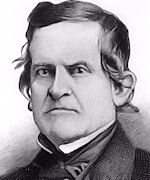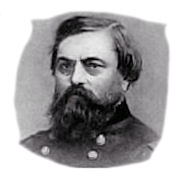March 23rd.—It is announced positively that the authorities in Pensacola and Charleston have refused to allow any further supplies to be sent to Fort Pickens, the United States fleet in the Gulf, and to Fort Sumter. Everywhere the Southern leaders are forcing on a solution with decision and energy, whilst the Government appears to be helplessly drifting with the current of events, having neither bow nor stern, neither keel nor deck, neither rudder, compass, sails, or steam. Mr. Seward has declined to receive or hold any intercourse with the three gentlemen called Southern Commissioners, who repaired to Washington accredited by the Government and Congress of the Seceding States now sitting at Montgomery, so that there is no channel of mediation or means of adjustment left open. I hear, indeed, that Government is secretly preparing what force it can to strengthen the garrison at Pickens, and to reinforce Sumter at any hazard; but that its want of men, ships, and money compels it to temporize, lest the Southern authorities should forestall their designs by a vigorous attack on the enfeebled forts.
There is, in reality, very little done by New York to support or encourage the Government in any decided policy, and the journals are more engaged now in abusing each other, and in small party aggressive warfare, than in the performance of the duties of a patriotic press, whose mission at such a time is beyond all question the resignation of little differences for the sake of the whole country, and an entire devotion to its safety, honour, and integrity. But the New York people must have their intellectual drams every morning, and it matters little what the course of Government may be, so long as the aristocratic democrat can be amused by ridicule of the Great Rail Splitter, or a vivid portraiture of Mr. Horace Greeley’s old coat, hat, breeches, and umbrella. The coarsest personalities are read with gusto, and attacks of a kind which would not have been admitted into the “Age” or “Satirist” in their worst days, form the staple leading articles of one or two of the most largely circulated journals in the city. “Slang” in its worst Americanised form is freely used in sensation headings and leaders, and a class of advertisements which are not allowed to appear in respectable English papers, have possession of columns of the principal newspapers, few, indeed, excluding them. It is strange, too, to see in journals which profess to represent the civilization and intelligence of the most enlightened and highly educated people on the face of the earth, advertisements of sorcerers, wizards, and fortune-tellers by the score—”wonderful clairvoyants” “the seventh child of a seventh child,” “mesmeristic necromancers,” and the like, who can tell your thoughts as soon as you enter the room, can secure the affections you prize, give lucky numbers in lotteries, and make everybody’s fortunes but their own. Then there are the most impudent quack programmes—very doubtful “personals” addressed to “the young lady with black hair and blue eyes, who got out of the omnibus at the corner of 7th Street”—appeals by “a lady about to be confined” to any respectable person who is desirous of adopting a child:” all rather curious reading for a stranger, or for a family.
It is not to be expected, of course, that New York is a very pure city, for more than London or Paris it is the sewer of nations. It is a city of luxury also—French and Italian cooks and milliners, German and Italian musicians, high prices, extravagant tastes and dressing, money readily made, a life in hotels, barrooms, heavy gambling, sporting, and prize-fighting flourish here, and combine to lower the standard of the bourgeoisie at all events. Where wealth is the sole aristocracy, there is great danger of mistaking excess and profusion for elegance and good taste. To-day as I was going down Broadway, some dozen or more of the most over-dressed men I ever saw were pointed out to me as “sports;” that is, men who lived by gambling-houses and betting on races; and the class is so numerous that it has its own influence, particularly at elections, when the power of a hard-hitting prizefighter with a following makes itself unmistakably felt. Young America essays to look like martial France in mufti, but the hat and the coat suited to the Colonel of Carabiniers en retraite do not at all become the thin, tall, rather long-faced gentlemen one sees lounging about Broadway. It is true, indeed, the type, though not French, is not English. The characteristics of the American are straight hair, keen, bright, penetrating eyes, and want of color in the cheeks.
![]()









